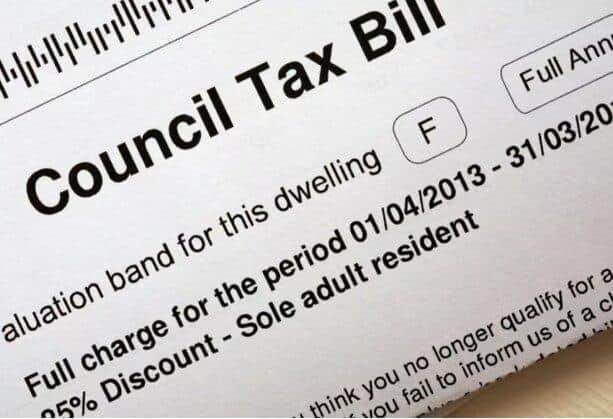Five percent council tax rise ‘assumed’ by Lancashire County Council for the next three years
and live on Freeview channel 276
The latest update to the authority’s medium-term financial strategy reveals that County Hall’s calculations about how to balance its books rely on an expectation that bills will rise by 4.99 percent from 2024/25 through until 2026/27. That is currently the maximum amount permitted by the government without staging a local referendum on the subject.
While the authority's finance officers have factored in such an increase to their forecasts, it is ultimately up to elected county councillors to decide how much council tax will rise at each year's annual budget - and they shied away from the maximum hike last year and in 2021.
Advertisement
Hide AdAdvertisement
Hide AdThe county council’s share of council tax bills accounts for most of the charge levied on Lancashire residents - with district councils and the police and fire services making up the remainder.


The authority will set its budget for 2024/25 on 23rd February - and if it did choose to go for the 4.99 percent rise, the move would add just over £78.50 to the charge on a Band D property. Every one percent increase raises around £6m for County Hall's coffers.
While the government-permitted increases in council tax beyond the next financial year have not yet been confirmed, the county council’s assessment of forecasts made by the independent Office of Budget Responsibility led it to conclude that so-called “core council tax” will be allowed to increase by up to 2.99 percent and that there will continue to be the flexibility for authorities responsible for social care to apply an additional two percent “precept” for that purpose.
Any council tax increase in Lancashire in the next financial year, which starts in April, will come against the backdrop of the county council facing £260m of pressure on its budget over the next three years.
Advertisement
Hide AdAdvertisement
Hide AdThe additional costs come primarily from a combination of inflation and increased demand for the authority’s services, which are predicted to add a respective £136.5m and £77.2m to County Hall’s bills between now and 2067/27.
In spite of those eye-watering sums, the authority is forecasting a surplus on its budget by the end of that period of £4.9m - a reversal of the ever-fluctuating deficits that have so often been the medium-term prediction over recent years.
However, that forecast is tempered by the fact it depends on delivering a further £96m of savings during that time - £15m of which were approved, pending public consultations over some of them, earlier this month.
Action taken by council management last year identified another £23m of savings, including via changes to working practices, increased income generation, scrapping vacant posts deemed no longer needed and removing any recurring underspends within departments.
Advertisement
Hide AdAdvertisement
Hide AdDeputy county council leader Alan Vincent - who is also the cabinet member for resources - told the Local Democracy Reporting Service (LDRS) that the last 12 months had been “the hardest year” he had known in the decades during which he has been involved with local authority finances.
He said that while the predicted surplus by 2026/27 was welcome news and the result of hard work by both the cabinet and county council officers, the figure can “change almost by the day”, as pressures come and go and solutions are found to the perennial problem of making the numbers add up.
The figures and assumptions in the medium-term financial strategy were drawn up before the announcement last week of a one-off £600m funding increase for local authorities from central government, £500m of which will be directed towards social care. As the LDRS has previously revealed, Lancashire County Council expects its share to amount to around £11m, which County Cllr Vincent said would alleviate some, but not all, of the pressures in that service.
At a meeting of the cabinet earlier this month, he stressed that the authority was in far better financial shape than many others and, unlike four in ten county councils, according to a recent survey, Lancashire will be able to set a balanced budget in the coming financial year. He also said that - at £5.9m - Lancashire’s predicted overspend in the current year was over £10m below the county council average across England and Wales.
Advertisement
Hide AdAdvertisement
Hide AdThe authority will also have reserves totalling £165m by the end of March, although County Cllr Vincent told colleagues that the pot was there “to meet any financial shocks encountered along the way and not to prop up inefficiencies - other than to allow changes for the good to happen”.
“The reduction in inflation that we saw in late 2023, gave some hope that the economy - and thus the nation’s finances - had turned the corner and 2024 may be a better year for us all, particularly if inflation gets back on the downward path,” he added.
